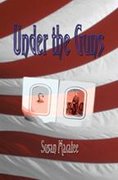One of the strongest influencers of Victorian trends and fashion was Eugenie, the Empress of France. What does a French empress have to do with popularizing Gypsy entertainment? Quite a bit.
The Spanish Eugenie was a lesser member of Spanish royalty (http://en.wikipedia.org/wiki/Eug%C3%A9nie_de_Montijo), which afforded her time to spend with her adoring father - the Grandee Don Cipriano - on wild excursions. Riding horseback into Gypsy encampments for lengthy stays in the outlying countryside, Eugenie became comfortably familiar with the troupes’ customs and culture.
Eugenie learned the music and dances of the Gitanos, which were the Spanish gypsies, and even the fortune-telling skills that she later used when traveling incognito. Historically, Spaniard aristocracy traveled in disguise, especially disguised as gypsies. A number of modern societies can be found which are preserving the history of gypsies; one which describes the various groupings and American settlements is located at http://www.gypsyloresociety.org/interact.html
In the book Crowned In A Far Country by Princess Michael of Kent (ISBN 0954327217), an incident of Eugenie’s youthful adventures is told masterfully by this seasoned storyteller. Eugenie and another female friend (no name given) were traveling in Seville, Spain, posing as a pair of wild gypsy women. They were staying in their own tent, having a grand adventure, entertaining passing gentlemen with gypsy dances and tossing wantonly flirtatious glances. The two ingénues eventually revealed their identity to two smitten British gentlemen, as the story goes.
As the influential Empress of France, Eugenie notably favored traditional Spanish and Gypsy music. (She was even described at times as hopeless when it came to classical music.) Even as her tastes in fashionable attire and her reddish-gold hair color started major trends that swept more than one continent, her tastes in musical choices and entertainment were also being copied and even decried by wagging tongues.
Scandalously, Eugenie often appeared in wild costumes for entertainment, including gypsy-derived styles. Until Eugenie became the focal point of blame for the failure of the “Mexican Adventure” and until the execution of the Archduke Maximilian of Austria Emperor of Mexico, Eugenie ran a lively and exciting court. Upon the death of the Archduke, she and other members of the court went into official mourning. After 1867, therefore, more somber styles of music and fashion and entertainment permeated the French court, ending an era of wilder fashion and entertainment as inspired by Eugenie's love of the Spanish and Gitanos. Eugenie even stopped purchasing extravagant gowns from the House of Worth dressing less frivolously and extravagently. Until 1867, then, Eugenie’s Spanish heritage and gypsy flair had created some exciting trends during in the Victorian era.
By Kristin-Marie
Thursday, June 22, 2006
Subscribe to:
Post Comments (Atom)









No comments:
Post a Comment